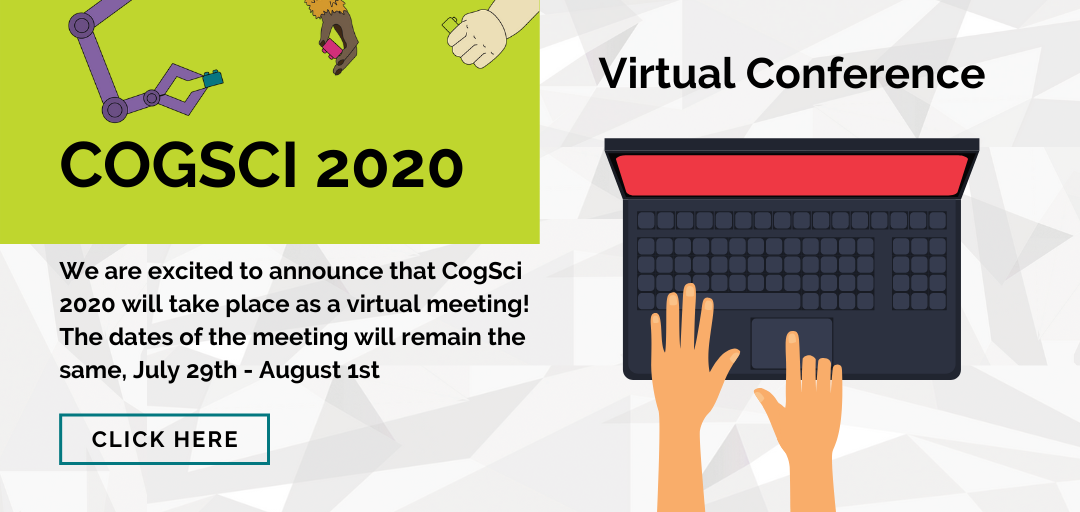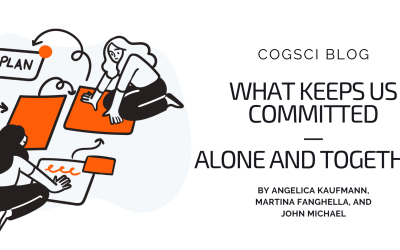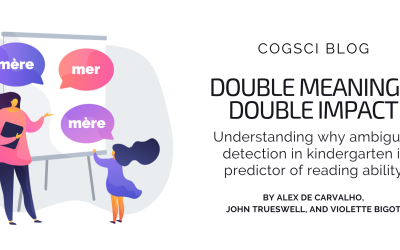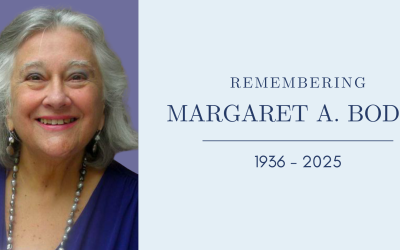CogSci will be different this year. Then again, nearly everything is different this year. Although the community and our members have experienced wide-ranging challenges since our 2019 conference, we’re grateful to have the opportunity to convene virtually. We hope that CogSci 2020 will provide a much-needed opportunity to connect with colleagues, gain valuable feedback on your work, and develop new research ideas.
This year’s theme is Developing a Mind: Learning in Animals, Humans, and Machines
Rather than being a largely separate theme in its own right, #CogSci2020 will help inform why #Development should be a central principle that is part of and positively contributes to theories and methodologies within the cognitive sciences. Join us!
— CogSci Society (@cogsci_soc) July 3, 2020
As always, the conference will feature talks and posters on new research in all areas of cognitive science. Be sure to check out our “what to expect” guide for more on the logistics of the virtual meeting. And keeping with tradition, we announce a Rumelhart Prize winner — an individual or collaborative team making a significant contemporary contribution to the theoretical foundations of human cognition. Be sure to check out this short video: 20 Years of Rumelhart Prize.
We will also honor Glushko Dissertation Prize winners, in recognition of the following early career researchers who are conducting ground-breaking research in cognitive science.
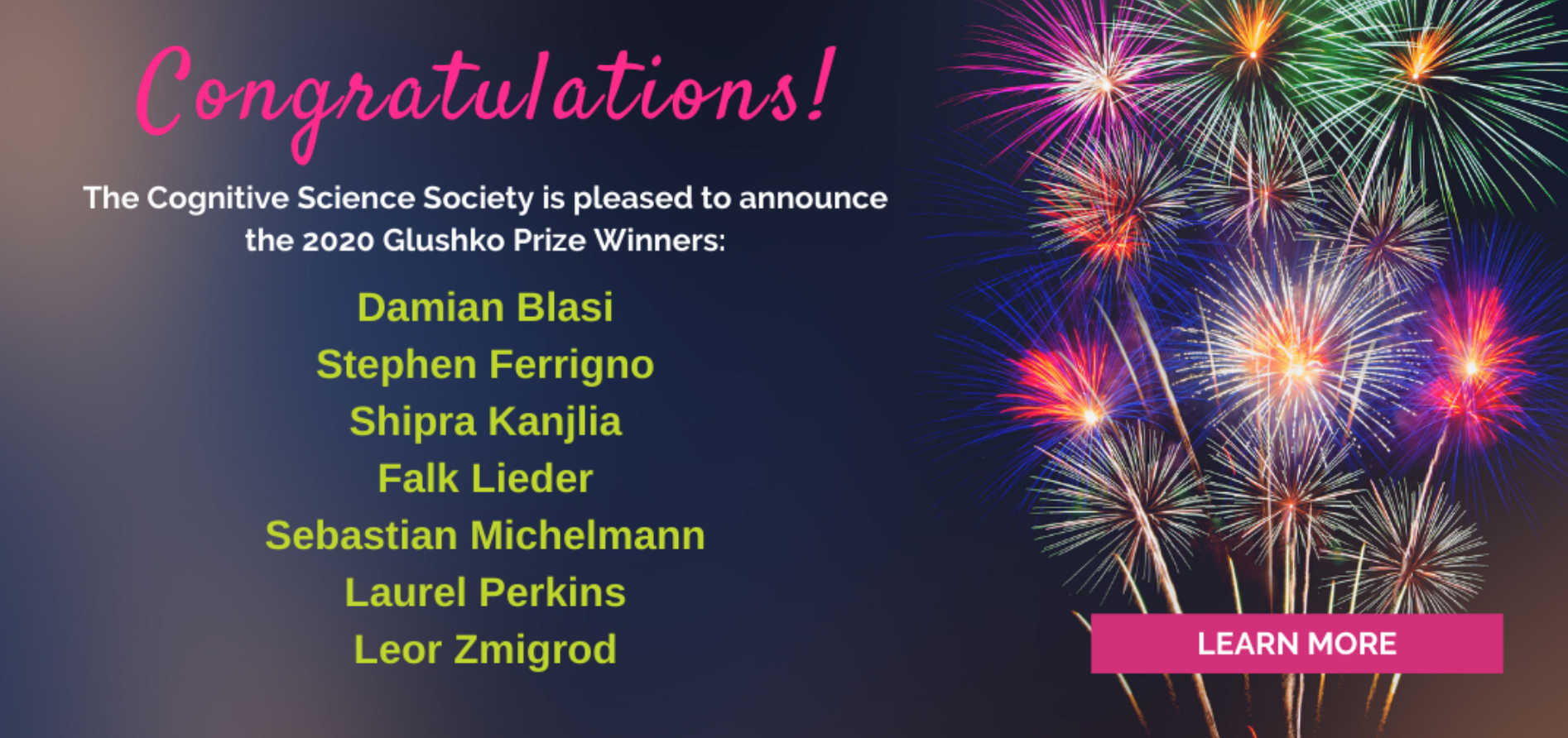
In addition, this year we’ll recognize Jenny Saffran, the recipient of the inaugural Jeffrey L. Elman Prize. In recognition of Jeff Elman’s many contributions to the field of cognitive science, the Cognitive Science Society in partnership with the University of California, San Diego recognizes mid-career cognitive scientists (individuals or teams) whose careers exemplify the twin strands of scientific excellence, and commitment to community-building and service that were so evident in Jeff Elman’s career.
Finally, we’d be remiss if we didn’t recognize this year’s conference organizers. Organizing a conference is always a big undertaking, but this team’s ability to pivot to a new format when the circumstances required is the reason we’re able to connect and share the latest cognitive science research with each other this week. You can read more about the organizers on the conference homepage.
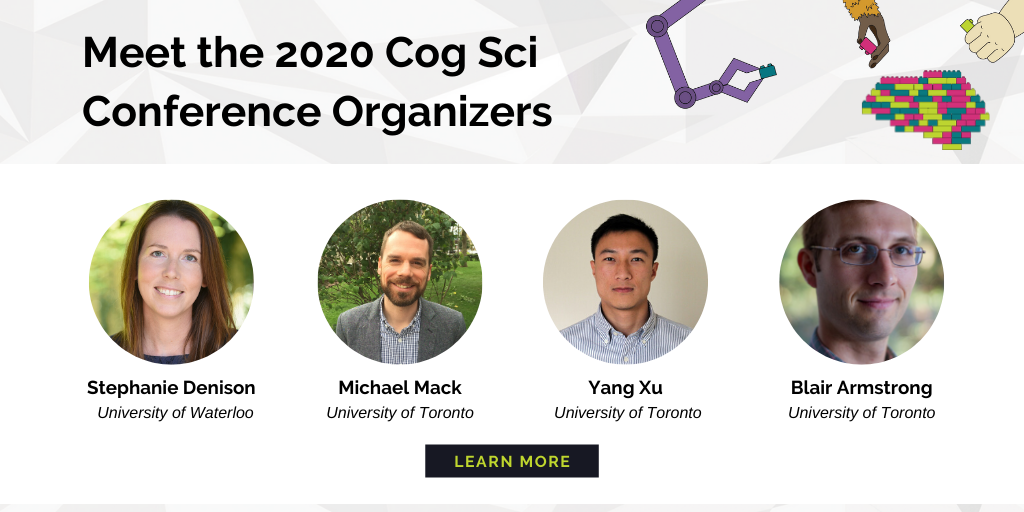
Please join the conversation on Twitter by using the hashtag #CogSci2020. We’re eager to hear what you think and what you’re learning, and to meet more members of the CogSci community.
